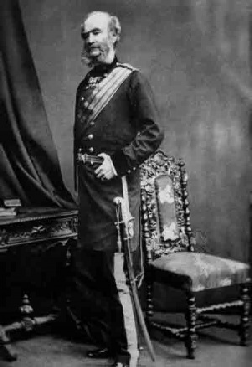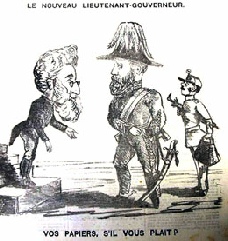Friends of Hastings Cemetery

Hastings and St Leonards Observer -
DEATH OF GENERAL NORCOTT. "THE LAST PARADE."
General Sir William Sherbrooke Ramsay Norcott, of St. Leonards, died at his residence in Pevensey-
[He was ADC to the Queen 1855-
The General subsequently became Governor of Jersey and was much respected by the islanders for the wisdom and justice of his administration. He received the rank of major-
He leaves a widow and several children behind him. General Norcott was buried quietly on Wednesday, his mortal remains being interred in the Ore Cemetery. The 2nd Battalion of the Rifle brigade offered to do military tribute to his memory, but the family gratefully declined the honour, they desired the obsequies to be of a private character. The funeral service was conducted by the Rev. G. G. Gardiner, of St. Leonards Parish Church. The mourners for the deceased included Major Norcott, the Royal Munster Fusiliers, his second son, Mr. O. Jones, his son-
General Norcott, though not in the generally accepted sense of the term, a public man, will be universally regretted by his friends, and his loss will not be forgotten for many years to come. To use his own phrase he has answered to the roll call for the last parade, but the gap which his death made in the ranks will not be easily filled up.
NORCOTT, Lady Frances Marianne. Daughter of G.Durant, widow of Gen. Sir W.S.R.Norcott, KCB;
1887 ‘St Ronan’s’ no.12 Pevensey Rd, 1887
1903 Quarry Bank, Quarry Hill Rd, 1903.
1905, no.1 Quarry Bank, Quarry Hill Rd.
Hastings and St Leonards Observer -
LADY NORCOTT. We regret to record the death Lady Norcott, of 1, Quarry Bank, Quarry Hillroad, St. Leonards, which occurred on Monday. Lady Norcott. who was 79 years of age, had lived in St. Leonards since about 1870, with the exception of a break of about five years at the time her late husband, General Sir William Norcott, K.CB., was Lieutenant-

Blog cont. “Norcott was something of an artist and the scene-

On his arrival as Governor of Jersey.